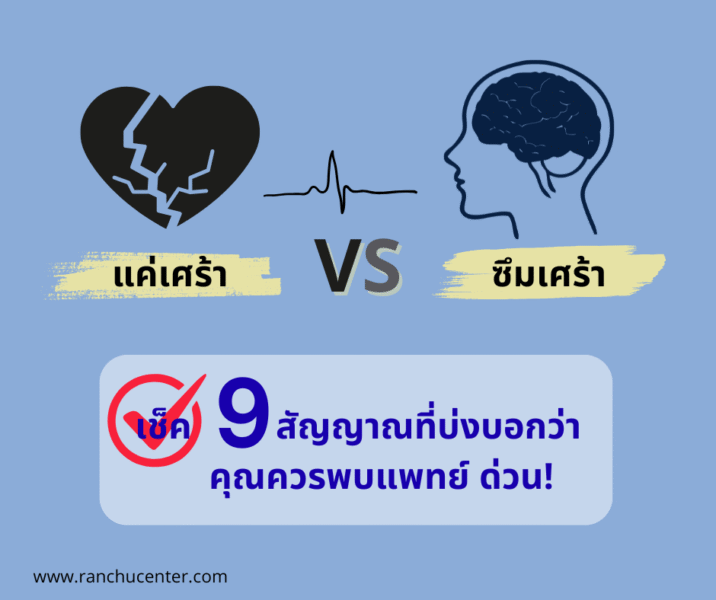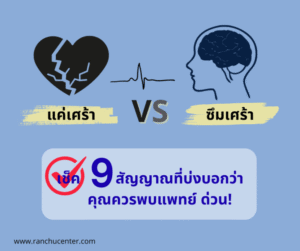Understanding Mental Health Awareness: A Path to Well-Being
เวลาอ่านโดยประมาณ: 10 นาที
Key Takeaways
- Mental health awareness is crucial for reducing stigma and promoting mental wellness.
- Understanding mental health disorders helps in recognizing when someone needs help.
- Mental health education fosters informed communities that support health issues.
- Access to mental health resources is vital for addressing mental health crises.
- Practical mental health habits can greatly enhance overall well-being.
Table of contents
Mental health awareness is the recognition and understanding of mental health issues and the significant effects they can have on individuals and communities. It encompasses the importance of addressing these issues effectively. Mental health itself is defined as a state of emotional, psychological, and social well-being. This state affects how individuals think, feel, and act throughout their lives.
The significance of mental health awareness cannot be overstated. It plays a critical role in reducing stigma, encouraging open conversations about mental health, and promoting better mental health practices. By fostering an environment where mental health can be discussed freely, we pave the way for healthier communities that support personal growth and well-being.
In this blog post, we will explore the importance of mental health, understanding mental health disorders, and the critical role that mental health education plays in our lives. Information about maintaining mental wellness is crucial; for understanding these concepts, you may refer to previous blog posts such as How to Manage Stress: Effective Techniques for a Balanced Life and Understanding Depression Symptoms: Recognizing and Treating Them.
Source:How to Manage Stress: Effective Techniques for a Balanced Life, Understanding Depression Symptoms: Recognizing and Treating Them
The Importance of Mental Health
The importance of mental health is central to individual well-being and community health. Mental health influences how we make decisions, navigate relationships, and cope with stress daily. When we prioritize our mental wellness, we set a strong foundation for our personal and community health.
Consequences of Poor Mental Health
Unfortunately, poor mental health can lead to severe consequences, including:
– Physical Health Risks: Conditions like heart disease, diabetes, and other health complications can arise from untreated mental illnesses.
– Strained Relationships: Mental health struggles often affect how we interact with friends, family, and coworkers, making it harder to build and maintain relationships.
– Decreased Productivity: Poor mental health can diminish focus and motivation, leading to lower performance in school or at work.
– Economic Impact: The repercussions of untreated mental health issues can extend to the economy, as communities may experience decreased workforce productivity and increased healthcare costs.
Societal Stigma
Societal stigma remains a significant barrier to mental health treatment, preventing individuals from seeking the help they need. This stigma can create unnecessary hurdles, making it harder for those experiencing mental health challenges to lead fulfilling lives. By fostering mental health awareness, we can break down these barriers and encourage individuals to access the mental health resources available to them. For more insights on mental health stigma, check out Mental Health and Stigma: Understanding and Overcoming Barriers.
Source:Mental Health and Stigma: Understanding and Overcoming Barriers
Understanding Mental Health
Understanding mental health is vital in recognizing when someone needs help. Common mental health disorders include:
1. Anxiety Disorders: These disorders are characterized by excessive worry and fear. Individuals may experience persistent anxiety that interferes with daily activities.
2. Major Depressive Disorder: This disorder involves persistent feelings of sadness and a lack of interest in activities once enjoyed, which can be debilitating.
3. Bipolar Disorder: Individuals with bipolar disorder experience extreme mood swings that can range from intense highs (mania) to deep lows (depression).
Recognizing the signs of mental health issues is essential. Some common indicators include:
– Constant fatigue
– Withdrawal from social activities
– Changes in appetite (either increase or decrease)
– Difficulty concentrating
These signs highlight the importance of mental health education and support. Knowledge about mental health disorders can pave the way for timely help. Consult reputable sources like the Mayo Clinic or the National Institute of Mental Health for factual information on mental health disorders and their symptoms.
Mental Health Education
Mental health education is crucial for fostering an informed society. By integrating mental health education in schools, workplaces, and communities, we enhance our understanding and support for mental health issues.
Discussing and promoting mental health education helps in several ways:
– Reduces Stigma: Increased knowledge can help dispel myths and misconceptions surrounding mental health.
– Increases Awareness: Education empowers individuals with information, enabling them to recognize mental health concerns in themselves or others.
– Enhances Resources Access: When communities are informed, people are more likely to seek out and engage with mental health resources.
Various programs exist that promote mental health education, including:
– Mental Health First Aid: This initiative teaches individuals how to identify, understand, and respond to mental health issues.
– School-Based Mental Health Initiatives: Many schools have adopted programs to educate students about mental health, creating a supportive environment. You can explore such initiatives in detail in Understanding Mental Health Support in Thailand: Resources and Services.
Reputable organizations offering mental health education programs include the World Health Organization (WHO) and local non-profits. Their initiatives play a vital role in fostering educational opportunities related to mental health.
Source:Understanding Mental Health Support in Thailand: Resources and Services
Mental Health Resources
Having access to mental health resources can make a big difference. Here’s a comprehensive list of mental health resources available:
– National Hotlines:
– National Suicide Prevention Lifeline: A confidential hotline that provides 24/7 support.
– Crisis Text Line: Text “HOME” to 741741 for crisis support.
– Websites for Support:
– MentalHealth.gov: A source for information and resources on mental health.
– NAMI.org (National Alliance on Mental Illness): Offers education and support to anyone affected by mental health challenges.
– Community Health Services/Support Groups: Many communities offer mental health services, including therapy, counseling, and support groups. Research your local options to find help.
Knowing when to access these resources is crucial. Here are common situations where mental health resources may be necessary:
– During a mental health crisis, such as suicidal thoughts or self-harm.
– When someone observes changes in their mental health, or that of a loved one, and feels uncertain about what steps to take next.
Always remember that it’s okay to seek help when experiencing mental health struggles. For additional insights visit Recognizing Mental Health Issues: Signs and Support.
Source:Recognizing Mental Health Issues: Signs and Support
Practical Mental Health Tips
Maintaining good mental health involves daily practices and long-term habits. Here are some actionable mental health tips:
– Mindfulness Practices
– Meditation: Engage in short meditation sessions to clear your mind and relieve stress.
– Breathing Exercises: Take time to focus on your breathing whenever you feel overwhelmed.
– Regular Exercise
– Participate in physical activities to improve your mood. Regular exercise has been proven to reduce stress and anxiety levels.
– Seeking Professional Help
– If you’re feeling overwhelmed, don’t hesitate to seek professional guidance. Recognizing that you need help is a crucial step and a sign of strength.
– Daily Practices
– Journaling Thoughts: Writing down your feelings can provide an outlet for expression.
– Balanced Diet: Nourishing your body with healthy foods contributes to overall well-being.
– Proper Sleep: Make sleep a priority to ensure you feel energized and focused.
These mental health tips underscore the importance of mental health in leading a balanced life. Further, you can explore How to Manage Stress: Effective Techniques for a Balanced Life for more strategies.
Source:How to Manage Stress: Effective Techniques for a Balanced Life
สรุป
In summary, mental health awareness is pivotal for overall well-being and community health. Addressing mental health challenges leads to healthier, happier lives. By fostering a culture of openness about mental health, we can support those around us.
Encourage proactive steps in educating yourself about mental health. Utilize mental health resources when necessary and seek help if you or someone you care about is struggling.
We invite our readers to share their insights or experiences regarding mental health. Together, we can create a community that embraces mental health awareness and support.
By understanding the importance of mental health awareness, we take one step closer to a world where mental wellness is prioritized and stigma is eradicated. Let’s work together to promote understanding, compassion, and support for mental health issues for everyone. For more on these topics, feel free to visit Support for Depression: Understanding Effective Help and Resources and Understanding Depression Treatment: Effective Strategies to Cope with Depression.
Source:Support for Depression: Understanding Effective Help and Resources, Understanding Depression Treatment: Effective Strategies to Cope with Depression
































